Fascinated with fireflies? Add these 10 Plants that Attract them, and watch your garden light up like magic on summer nights!
These beetles with glowing abdomens create a blanket of tiny, flashy living bulbs that can turn any garden into a sparkling fairyland!
What Attracts Fireflies
Native plants that provide sustenance, tall grasses to lay eggs on, moist soil and leaf litter for larvae to find food in, and broad-leaved ground covers and woody plants to hide and flash from are key to attracting and supporting firefly habitats.
Beyond their surreal visuals, fireflies are also excellent pollinators and natural pest deterrents. So don’t delay, and get cracking on that wholesome firefly habitat they can call home!
Click here to know the spiritual meaning of seeing a firefly
10 Plants that Attract Fireflies
1. Eastern gamagrass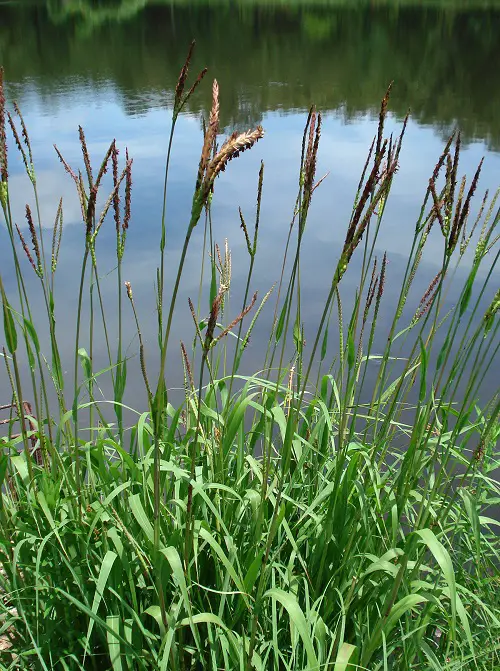
Botanical Name: Tripsacum dactyloides
After a long day of buzzing around, the North American grass is a perfect refuge for fireflies and for attracting mates with their bioluminescence. It has broad leaves with prominent midribs and a fountain-like arching form.
Fireflies lay their eggs on their leaves and flash from these plants. So, don’t freak out if your gamagrass plant suddenly starts glimmering and dancing in the middle of the night!
2. Switchgrass
Botanical Name: Panicum virgatum
Switchgrass is an ornamental perennial grass that fireflies adore! Despite wearing a bluish tint in summer, yellow-orange in fall, and brown in winter, this plant has made it to our red carpet for being the abode of fireflies.
Resting on the tall blades of switchgrass, fireflies have ample hiding places from predators and can easily take off from their heights.
3. Indiangrass
Botanical Name: Sorghastrum nutans
With its tall grass blades (5-7 feet) and abundant yellow blooms, Indiangrass is the perfect cover for fireflies and other insects, such as grasshoppers. Since this plant is resistant to deer grazing, fireflies can relax and mate in peace and produce larvae on them.
4. Willowleaf Aster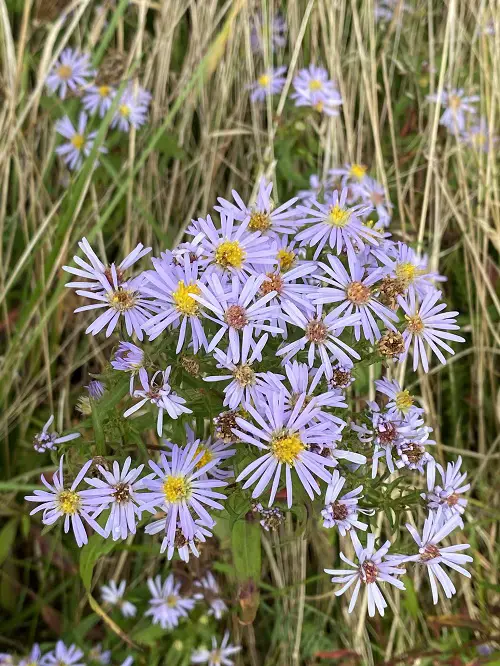
Botanical Name: Aster praealtus
This low-growing native perennial produces fan-shaped nectar-filled blooms that attract a host of pollinators, some of which are bees, butterflies, moths, and fireflies. Found widely in North America, plant them in your garden to provide a nourishing habitat that will summon an army of our tiny floating lanterns.
5. Frogfruit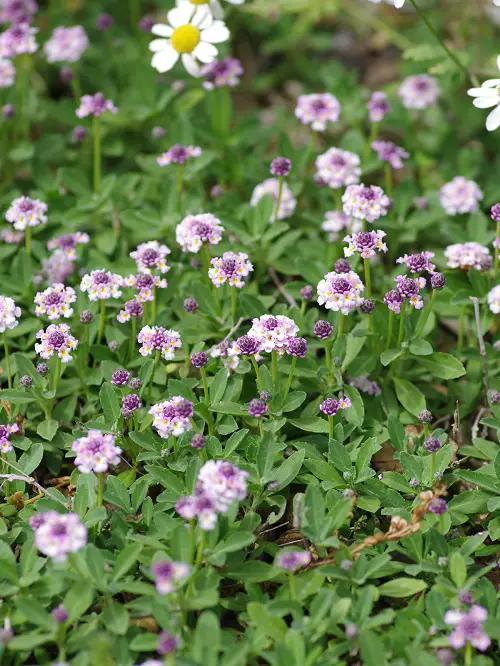
Botanical Name: Phlya nodiflora
Another one that has made it to our list of plants that attract fireflies is this American native, which thrives in moist habitats!
This turf-like, low-growing evergreen perennial is an ideal groundcover for insects, including our starry fireflies. With pinkish flowers and a purple center, this plant can be grown as a subtle border plant or around the pathways.
6. Cardinal Flower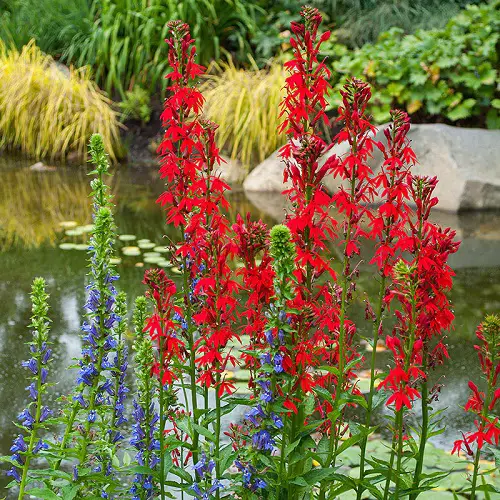
Botanical Name: Lobelia cardinalis
In the morning, butterflies flock to its tall spikes of scarlet flowers. And by night, fireflies and beauties envelop the cardinal flower! Its nectar-filled blooms also entice hummingbirds, moths, and bees!
This heirloom perennial, named after the red robes of the Roman Catholic cardinals, is toxic to humans if consumed.
7. Morning glory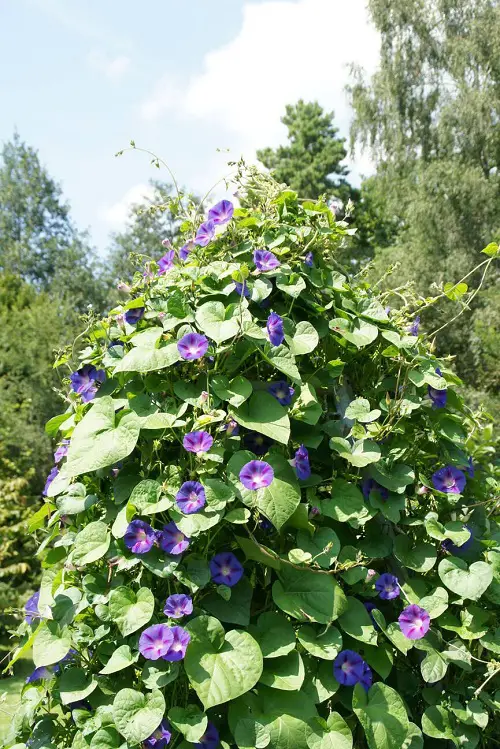
Botanical Name: Ipomoea purpurea
Morning Glories are fast-growing, invasive vines that produce stunning trumpet-shaped blooms that attract bees, butterflies, and fireflies!
In ideal climates, these vibrant climbers easily take on the shape of any structure but can quickly colonize other vegetation if not maintained.
9. Southern Dewberry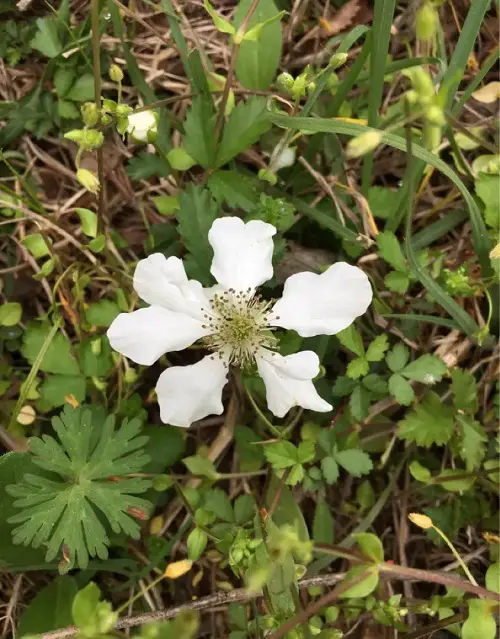
Botanical Name: Rubus trivialis
Bees, butterflies, songbirds, foxes, raccoons, black bears, and fireflies flock to the dainty white flowers and delicate purple fruits of this native perennial.
Growing in swamps and bogs, the plant provides excellent ground cover, and its delicious fruits are edible and cherished by humans as well.
9. Goldenrod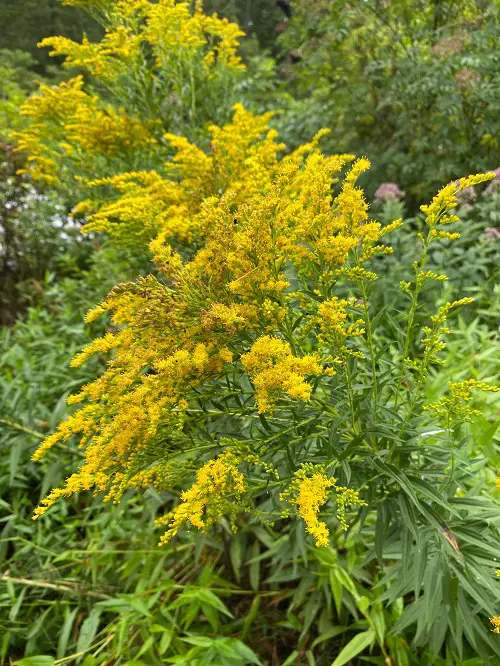
Botanical Name: Solidago altissima
These golden blooms attract golden fireflies! Maybe sometimes, all that glitters is gold! The plant has a central stem from which plume-like yellow blooms emerge in a conical shape. Pests like the golden gall fly feed on these plants, and our firefly larvae feed on these pests in turn!
10. Jasmine Tobacco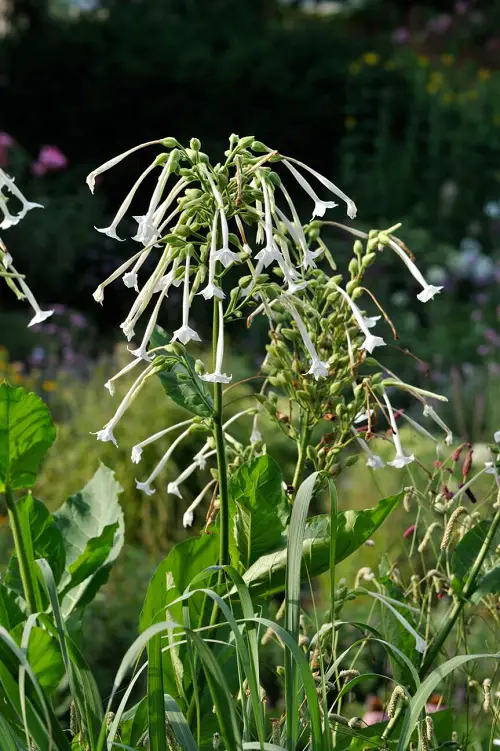
Botanical name: Nicotiana alata
Also known as flowering tobacco, this ornamental plant produces trumpet-shaped white nocturnal blooms with an inebriating fragrance that can be smelled from far away!
Since it blooms in the evening, planting it in your garden will invite frequent visits from nighttime pollinators like fireflies and moths.
With nearly 2000 known species of fireflies, these incredible creatures are fast declining due to habitat loss, light pollution, harmful chemicals, pesticides, and herbicides application. climate change, and environmental degradation.
So, if you can help conserve and provide a supportive habitat for fireflies, consider yourself blessed! These bioluminescent creatures signify balanced ecosystems and healthy, pollution-free biodiversity for all around them. Inspired? Drop your thoughts in the comments section below!



